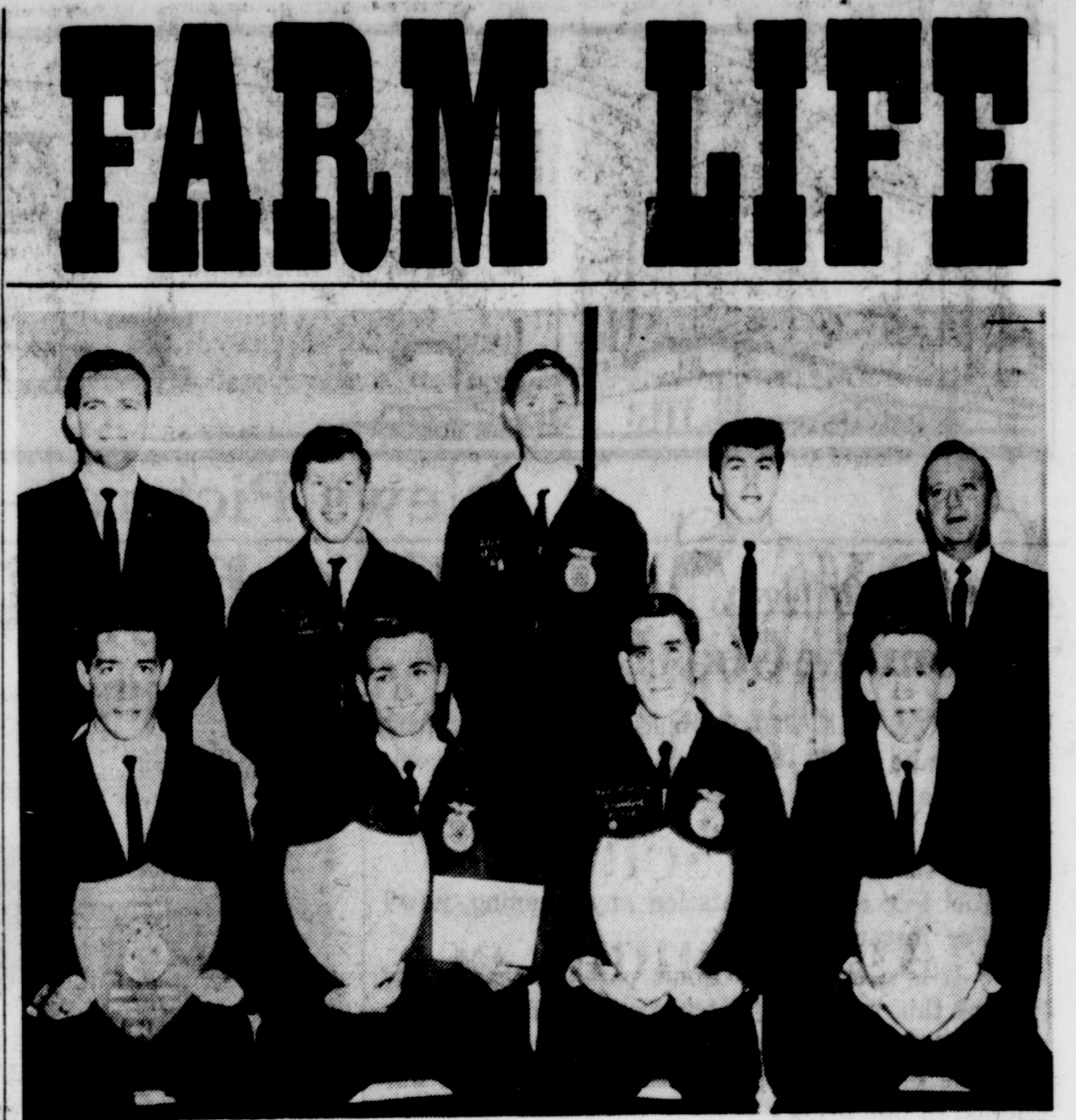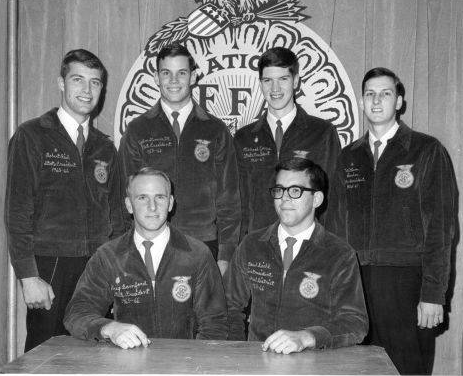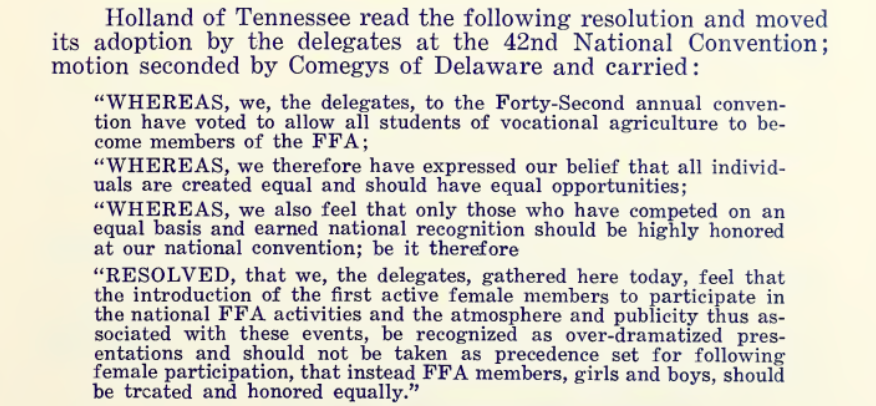Fighting for Females
Delegate Debate
After the Civil Rights Act of 1964 banned discrimination on the basis of race and gender, and African-Americans were admitted to FFA membership, the organization looked into legal obligations regarding female enrollment, which determined gender restrictions violated the law. In response, a 1966 special committee convened to review FFA membership rules and recommended striking 'male' from the national FFA constitution. In October, national convention delegates accepted many changes, but excluded removing 'male' from the constitution.

(Altoona Mirror, 23 April 1966)

National Officers, 1967-1968 (IUPUI, 1968)
Despite potential for lawsuits, resistance remained regarding female FFA membership. Like many initiatives, change began at the grassroots level where chapters were encouraged to make changes that suited their needs. In 1968, at the 41st convention, the issue was revisited and more seriously discussed, with strong opinions on both sides, which ended in a stalemate and no change to the constitution. However, perspectives showed signs of shifting toward a more positive view of female enrollment.
Achieving Admission
In 1969, with the pressures of societal change and the legal implications of maintaining the status quo for membership pressing upon the organization, the 42nd FFA National Convention was held in Kansas City, Missouri, where a motion to strike the word "male" from the constitution was moved and seconded. After discussion, the motion was carried, and two days later on October 17, 1969, a resolution was adopted by a two-vote margin to allow female members. This action forged a new frontier for females in agriculture through official admission to FFA membership.

Forty-Second National Convention Proceedings (IUPUI, 1969).

"Sharon Staley of the White River FFA Chapter in Washington, models the first official girl’s FFA jacket." (National FFA Organization, 1971)
“I know an agriculture professor who was a delegate in Iowa in 1969 and voted against admitting women when it ended up passing. On multiple occasions while speaking at FFA conventions he joked about how wrong he was, as he spent his life educating young [often female] agriculturalists.”
-Ronald Zelle, retired high school Agricultural Education Teacher (Email correspondence, 9 May 2023)